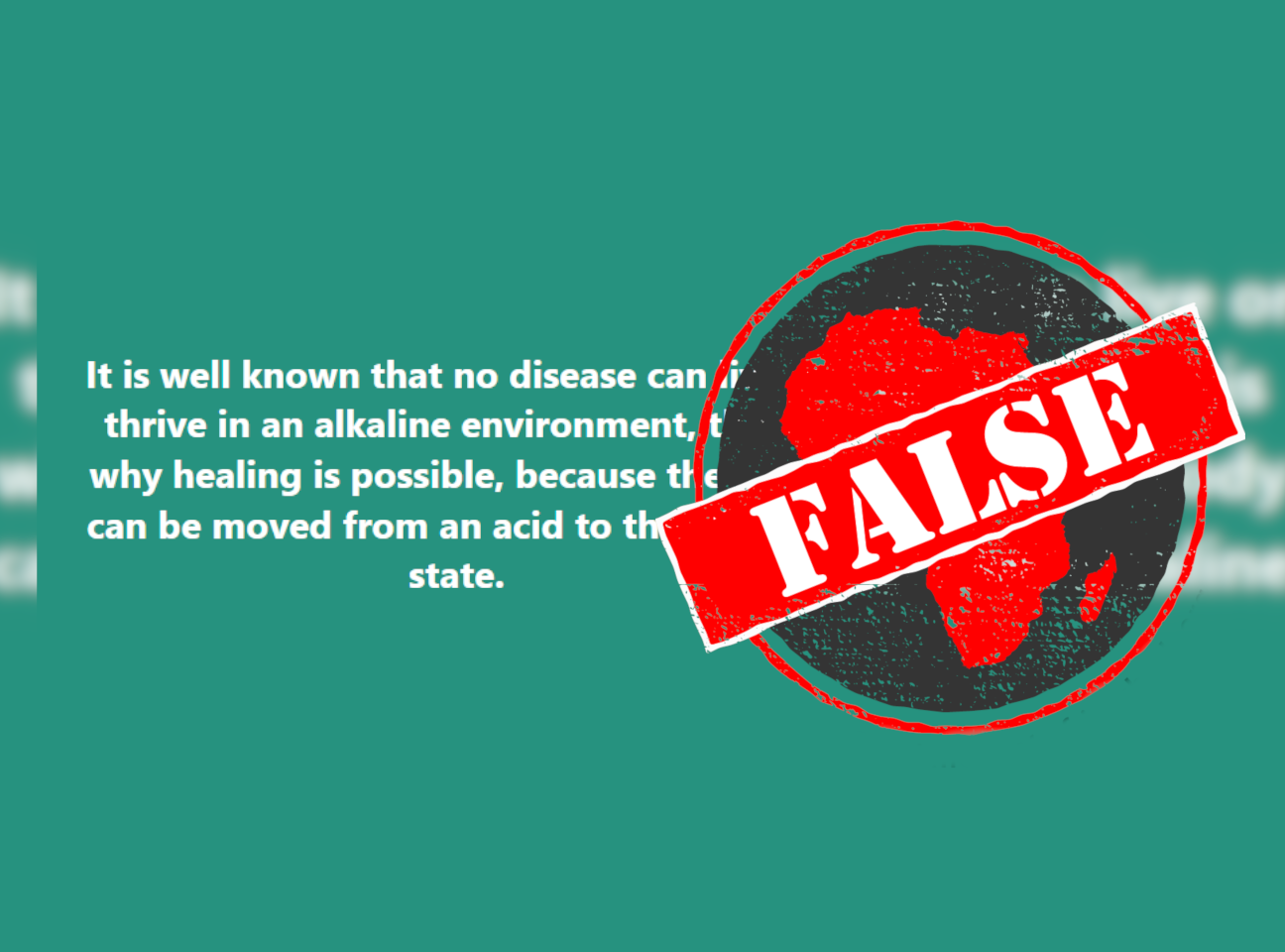IN SHORT: Another day, another post on Facebook suggesting you can change the pH level of your body and that this will affect your health. We’ve seen such claims before and they’re still not true. Diet does not affect the pH of the body and diseases such as cancer live in slightly alkaline environments anyway.
“It is well known that no disease can live or thrive in an alkaline environment” claims a post on Molo Health, a Facebook group with 25,000 followers. It then says “the body can be moved from an acid to the alkaline state”, making “healing” possible.
The group describes itself as “an alternative & holistic health service”. Similar claims are made in other posts by Molo Health, where it is used to advertise a product called Molo Juice, fruit and vegetable juices sold through a website.
Other Facebook users have also made the same claim, here and here.
But can diseases really not survive in alkaline environments, meaning moving the body to an “alkaline state” can cure them? We looked into it.

You can’t ‘alkalise’ your body with diet changes
In chemistry, pH refers to the amount of hydrogen something contains. It is measured on a scale from 1 to 14. The closer something’s pH is to 1, the more acidic it is. When something’s pH is closer to 14, it is more alkaline or “basic”.
Some people believe that by making specific changes to your diet, you can raise the pH of your body and, in particular, your blood, thereby “alkalising” it. This, the story goes, could have a range of beneficial effects on health, including treating major illnesses. But this is unscientific and not true.
Maintaining a pH balance is vital for the body to function properly. Various systems in the body work to keep pH within ideal levels. Any large changes in pH could have disastrous effects – for example, changes to the pH of the blood could be deadly.
The body naturally maintains a pH level that is overall slightly more alkaline than acidic, but pH also varies in different parts of the body. Your body can digest food because your stomach is acidic, while the pH of urine and saliva changes based on various factors, including diet. But the pH of the blood is kept constant, slightly alkaline, by the body, except during some illnesses.
This means that, contrary to what some wellness fads would have you believe, you can’t change your body’s pH in any substantial way with diet. You can’t move the body into an “alkaline state”, any more than it naturally is.
Diseases – including cancer – can survive in alkaline environments
Since our blood is always slightly alkaline, it is also clear that human diseases can survive and thrive in slightly alkaline environments.
As Africa Check has reported before, the idea that diseases can’t survive in alkaline environments may have come from a misunderstanding of early research into cancer and body pH.
Although there is a link between cancer and acidic conditions directly around cells, this is because cancer cells cause higher acidity – not the other way around.
An ‘alkaline diet’ is healthy, but not because it changes pH
Eating within the alkaline diet and possibly also drinking alkaline water is what is often claimed leads to an “alkaline state” in the body, allowing healing from disease. But other than for people with chronic kidney disease and a few other very specific conditions, there is no good evidence showing that this diet’s effect on pH does any good.
But the alkaline diet consists of lots of vegetables, fruit, nuts and legumes. This kind of diet is considered healthy. Although you can’t cure disease from it, eating these kinds of foods could make you feel better. But this is because these are, simply put, healthy foods – not because of any changing pH levels in the blood or the body.
Republish our content for free
For publishers: what to do if your post is rated false
A fact-checker has rated your Facebook or Instagram post as “false”, “altered”, “partly false” or “missing context”. This could have serious consequences. What do you do?
Click on our guide for the steps you should follow.
Publishers guideAfrica Check teams up with Facebook
Africa Check is a partner in Meta's third-party fact-checking programme to help stop the spread of false information on social media.
The content we rate as “false” will be downgraded on Facebook and Instagram. This means fewer people will see it.
You can also help identify false information on Facebook. This guide explains how.


Add new comment